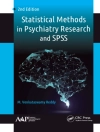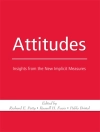Ethics in Psychological Research is a brief, practical guide for student researchers and their mentors to answer ethical questions and navigate issues of institutional policies and academic freedom. Authors Daniel P. Corts and Holly E. Tatum guide readers in identifying, preventing, mitigating, and resolving ethical issues in research using a unique ethical framework. Each of the standalone chapters provide real-life examples of ethical questions, a description of scholarly work on the matter, and suggestions for how to address similar problems should they arise in the researcher’s own work. The book makes for a succinct and easy-to-use reference for any student conducting research in the behavioral sciences.
Tabela de Conteúdo
Preface
Acknowledgments
About the Authors
Chapter 1. Ethics and Values in Psychological Science
Values in Science
Values and the Integrity of Research
Open Science
Psychologists’ Code of Ethics
Ethics and the Student Scientist
Looking Forward
Chapter Summary
Discussion Questions
Additional Resources
References
Chapter 2. Understanding Freedoms and Responsibilities
Academic Freedom
Ethics in Mentoring
Chapter Summary
Discussion Questions
Additional Resources
References
Chapter 3. Ethics of Collaboration
Ethical Values in Collaborative Research
Data Ownership
Authorship
Chapter Summary
Discussion Questions
Additional Resources
References
Appendix A: A Student–Faculty Research Agreement
Chapter 4. Managing Risks With Human Subjects
Human Subjects Protections
Identifying Risks
Benefits of Research
Challenges Unique to Student Researchers
Applying the PASA Model
Chapter Summary
Discussion Questions
Additional Resources
References
Chapter 5. Navigating the IRB Process
Introducing the IRB
Defining Research
Preparing to Communicate With the IRB
Writing Your IRB Proposal
Discussion Questions
Additional Resources
References
Chapter 6. Working With Animal Subjects
Rules and Regulations for Use of Animals in Research
Justification of Research
Capabilities of the Personnel and Institution
The Student Researcher
Chapter Summary
Discussion Questions
Additional Resources
References
Chapter 7. Research Misconduct
Research Misconduct
Research Misconduct Is Harmful
Questionable Research Practices
Handling Research Misconduct
Consequences of Research Misconduct
Chapter Summary
Discussion Questions
Additional Resources
References
Chapter 8. Ethics of Statistical Practices
Statistics in Research
Domains of Ethics in Statistical Practice
Responsible Use and Reporting of Data and Methodology
Abusing Researcher Degrees of Freedom
Recommendations for Statistical Analysis
The Open Science Framework
Ethical Responsibilities to Others
Chapter Summary
Discussion Questions
Additional Resources
References
Chapter 9. Ethical Writing Practices
The Literature Review
What Is Plagiarism?
Why Is Plagiarism Unethical?
Peer Review
Chapter Summary
Discussion Questions
Additional Resources
References
Index
Sobre o autor
Holly Tatum is the Mary Sabel Girard ‘34 Professor of Psychology and Chair of the Psychology Department at Randolph College in Lynchburg, Virginia. She teaches undergraduate courses in experimental, research methods, tests and measurements, gender, and health psychology as well as the senior capstone course. Holly’s research interests include the scholarship of teaching and learning. Her recent work has examined the effect of different types of honor codes on academic integrity. As a proponent of undergraduate research, Holly has co-authored book chapters on research-based capstone courses and summer research programs for undergraduates. Holly regularly participates in the Randolph College Summer Research Program supervising undergraduates conducting research. She also involves students in her own research as assistants and collaborators. These projects have led to numerous presentations at national conferences, a book chapter, and three peer-reviewed journal articles with undergraduate co-authors. Holly earned her Ph D in Experimental Psychology from the University of Tennessee.












